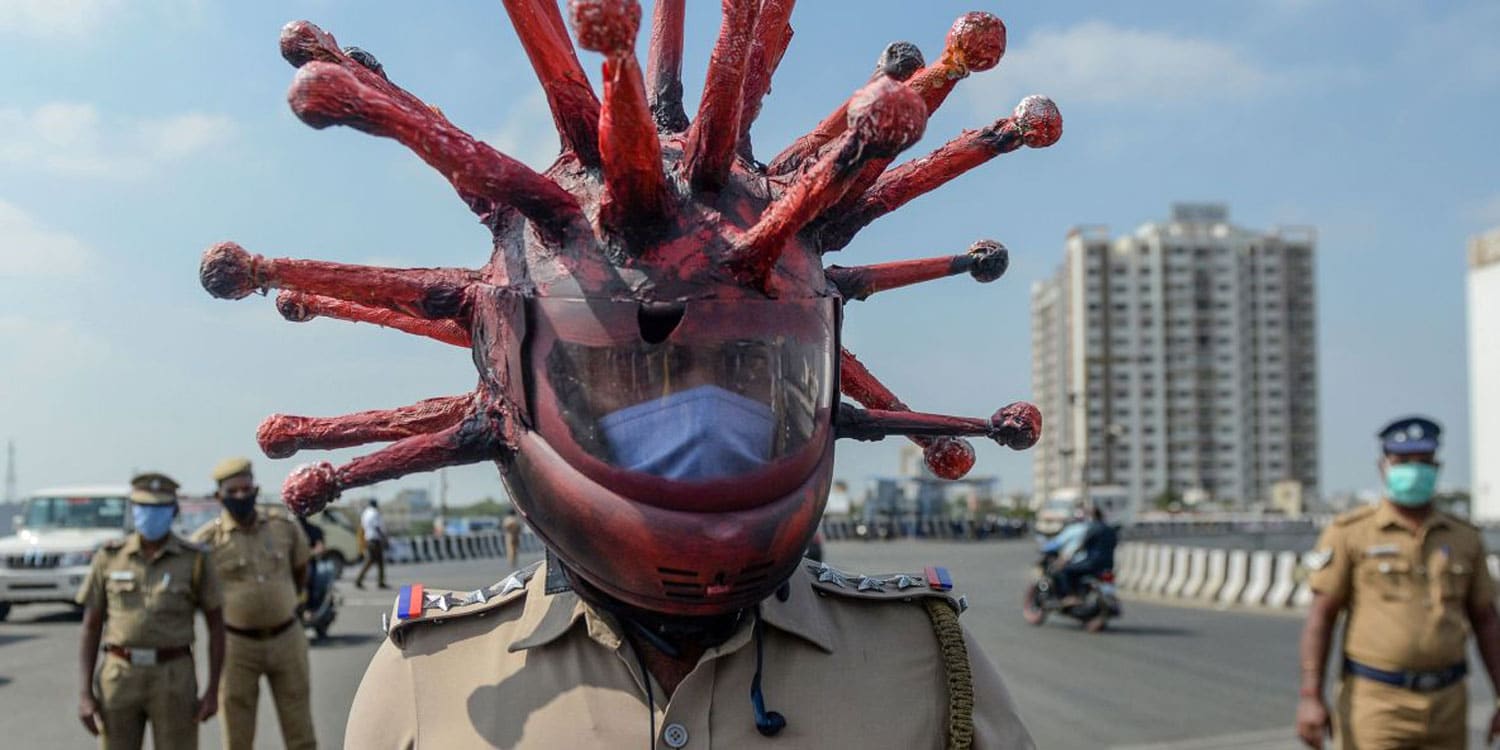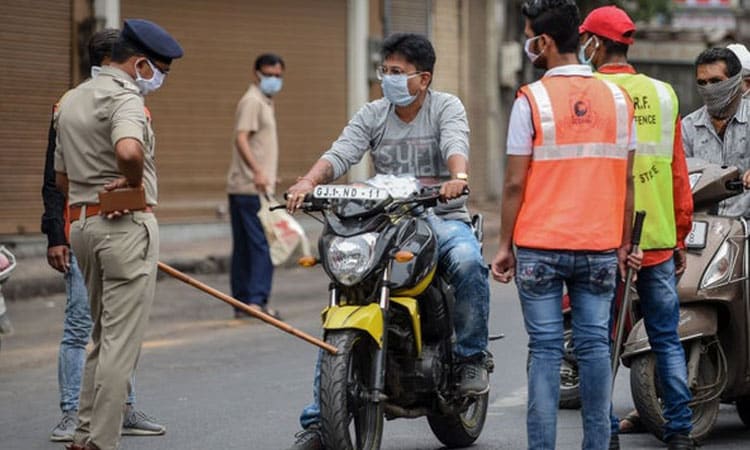‘The policemen are denounced by the public, criticized by the preacher, ridiculed by the movies, berated by the newspaper and unsupported by the prosecuting officers and judges. He is shunned by respectable. He is exposed to countless temptations and dangers, condemned when he enforces the law and dismissed when he does not…’ – these words have become immortal having a universal appeal ever since they were uttered by August Vollmer, Chief of Berkeley Police, in the last century.
And even though we are unaware of the hazards police personnel confront while discharging duty or the number of policemen annually losing their lives while on duty, yet police baiting has become a favorite pastime of a section of academic fraternity and intelligentsia in general, accusing the police of its professional incompetencies, ineffective leadership, deep-rooted corruption at almost all levels of the police hierarchy.

The existence of a well-administered police system in India as it exists today is the legacy of the British. It was introduced by them in the year 1861 to administer the colonial subjects, to preserve and sustain British Raj and to halt the tide of anti-British movements. Hence the British police force was used for nurturing and maintaining coercive control as it was never accountable to the masses. The unfortunate consequence of this was that the ‘police’ acquired an anti-people role- the image of an oppressor, alienated from the general citizen of India. It is unfortunate that even after independence this archaic, colonial, draconian Police Act of 1861 has been retained, though a few federal states have framed a new act.
In post-colonial India, the police force has been deployed on VIP duties, controlling political agitations and riots; various other law and order duties which in police parlance is known as bundobust duties; rehabilitating flood victims but to the best of the knowledge of the author never have police force been deployed to control such gigantic global health pandemic such as the novel corona.
The ever-escalating death tolls globally due to the spread of deadly corona reveal for the umpteenth time how vulnerable human beings are in spite of their desperate endeavor to reach the zenith of modern civilization through science and technology. The reality is we live in a risk society. In the last few decades of the twentieth century, noted sociologist Ulrich Beck had defined risk society as a systematic way of dealing with hazards and insecurities induced and introduced by modernization itself. In late modernity, one of the key activities of the police as an institution is the management of risk and it’s after effect. Thus the gamut of police work has increased.
This deadly virus requires physical distancing to avoid spreading of infection within the community at large. After the nationwide lockdown issued by the Indian government, a zero-tolerance policy to deal with those who defy the lockdown and loiter around meaninglessly have been adopted, thereby the roles of police have increased. The police are responsible to ensure compliance of lockdown. While the police top brass is responsible for drafting containment plans, the middle and lower-level officers along with civic volunteers are the foot soldiers in this endeavor to control such a health epidemic.
Community Policing has been redesigned in form of locating extreme micro units labeled as ‘hotspots’ and the police forces are involved in cordoning-off the areas, and sealing off such hotspot thoroughfares, streets, lanes and by lanes. The containment zones are being barricaded thereby preventing people from moving in and out of these areas. They are involved in setting up aisles in local markets; engaged in COVID patrolling the beats on motorbikes; adopting innovative means such as using the music of popular songs by inserting lyrics to disseminate information on preventive measures to be adopted by the civil society, in the process, entertaining them also. Thus the police are trying to look after the mental health of the citizens in this lockdown too.
The police are involved in conducting thermal check-up, restricting nonessential movements, distributing masks and food packets with the help of non-governmental organizations in the containment zone. In a few police commissionerates, a separate control room has been set up to receive orders from people staying indoor. Then police personnel in horizontal collaboration with non-governmental organizations are trying to provide the necessary essentials to the members of the civil society. It is necessary that in future an Emergency Response Unit is developed, in both rural and urban areas with the help of police, health workers, the information technology sector, and various other stakeholders. In receiving a call at such an Emergency Response Unit, the police can immediately get involved in helping citizens in need.
The videos circulated in social media reports stray incidents of highhandedness by the police force in controlling people affected by coronavirus such as upturning carts full of vegetables, use of lathi while dispersing the migrant workers in northern and western India, and forcing migrant workers to do push-ups on roads and pavements. It is to be remembered that in this lockdown the migrant workers are the worst sufferers. Battling hunger, poverty for many days, they are desperate to return to work for their survival and livelihood. It is to be remembered that migrant workers are not criminals, but they are unfortunate victims of circumstances. Hence instead of following the ‘hard’ way by using the baton, various ‘soft’ means such as using mike to announce the dispersal of the crowd are more appealing to such a segment of the population.

It is necessary for police personnel to learn to deal with vulnerable mob/crowd in such a non-violent situation. It is necessary for them to control such crowds by maintaining a physical distance. The next vulnerable section of society is the elderly population. Industrialization followed by rampant urbanization, the aftereffect of globalization has created opportunities for the youth to look out for jobs in other cities and abroad. Joint families have been replaced by nuclear families. For such elderly population police personnel with the help of civic volunteers and health workers are to supply essentials at the doorsteps and sick people in high-risk zones.
In West Bengal, police from Bidhannagar Commissionerate are engaged in operating vehicles round the clock to help old aged persons, persons with disability or in distress, free of cost to their destination and back in the name of “ Sahayak-Jan”. In the media, it has already been reported that during lockdown domestic violence has increased. Women Police Stations can play a positive role in such occasions. Along with non-governmental organizations, women police personnel can do legal counseling of the victims through helplines. Based on the ethos of understanding and empathy women police officers can generate positive emotion and try to fix ‘the problem’ in such a precarious situation.
The police have been responsible along with health officials in setting and monitoring the quarantine units. There have been reports of people trying to escape from such quarantine units. It is necessary to deploy police personnel in such crucial spots and monitor the activities of people undergoing social isolation in such units. Police personnel has started using closed-circuit television and drones for aerial surveillance of congested sensitive areas, for locating and identifying those who violate lockdown. It is necessary that the intelligence branch (both central and state) collect and collate information on any kind of socio-religious–political gathering. Such flow of information can help the police to plan strategies and implement them by halting gathering before its occurrence.
The colonial, archaic Epidemic Diseases Act, 1897, and the National Disaster Management Act, 2005, needs to be reframed to meet the challenges of the twentieth century. It is necessary that police receive training on the legal enforcement of the National Disaster Management Act, 2005. The National Disaster Response Force and Civil Defence of the Government of India may have a Pandemic Crisis Management Unit which will maintain horizontal collaboration with other stakeholders, civil in nature, to confront such a situation in near future. On the job training for police in such a lockdown situation is also essential and needs an ‘innovative’, ‘flexible’ professional effective leadership at the top. The most important duty of the police offers is containment and helping redistribution of resources in this pandemic phase There should be a monitoring unit for on-ground implementation of the orders.
There will be a sea change in policing in the post corona society. The police officers have a very important role to play as a law enforcement agency, as a social worker and a psychological counselor. It is necessary that there is an allocation of resources for preparing for such pandemic in the budget for the police force.
In general, the police forces have contributed a day’s salary for the central as well as state welfare funds It is to be remembered that the police force has never received any training to deal with such global health hazards. In fact, the entire world was not prepared for such apocalypse. The socio-economic consequences of this global health hazard are regularly being discussed by the experts.
Keeping in mind that in the twenty-first century we, the mortal human beings, live in a state of constant natural and manufactured risk, it is necessary that in future the police training institutes train the probationers on how to deal with such health epidemic and various other environmental hazards. In the Compendium of Good Practices, a section should be devoted to documenting the successful police practices in confronting COVID -19, which can be a very useful resource in training police personnel in the future. The need of the hour is to draft a standard operating procedure to deal with such health hazard which can be tailored to meet the region-specific needs.

